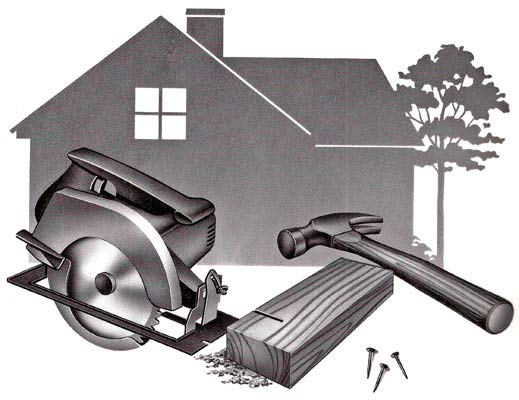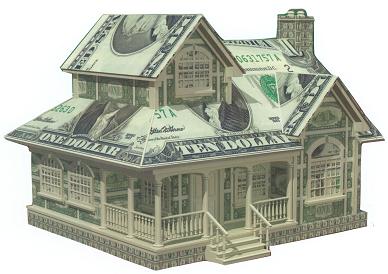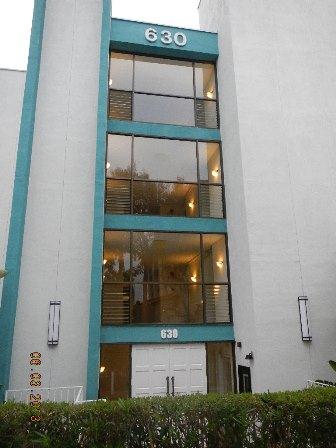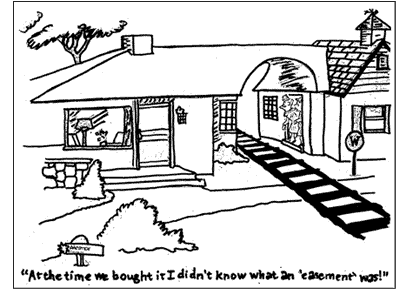
BLOG
Los Angeles FHA Loan Limits
Homeownership is not out of reach. FHA limits in California are one of the highest in the country. I have great lenders that can help you reach your real estate goals! Call me to get started on your home ownership goals!!! Laura Key 310.866.8422
Here are the current limits for Los Angeles (as of Nov 13, 2014) FHA allows 3.5% downpayment over a 15 to 30 year term!
Single Family $625,500
Duplex $800,775
Tri-Plex $967,950
Four-Plex $1,202,925
Start your home search today!
**Source: https://entp.hud.gov
FHA Limits for Los Angeles Area
Homeownership is not out of reach. FHA limits in California are one of the highest in the country. I have great lenders that can help you reach your real estate goals! Call me to get started on your homeownership goals!!! Laura Key 310.866.8422
Here are the current limits for Los Angeles (as of August 23, 2013) FHA allows 3.5% downpayment over a 15 to 30 year term!
Single Family $729,750
Duplex $934,200
Tri-Plex $1,129,250
Four-Plex $1,403,400
Source: FHA.com
More Renters Say They Want to Own, Survey Finds
Interested in purchasing a new home! I have a team that can help you reach your real estate goals! Call me today! Laura Key 310.866.8422
The majority of renters say home ownership is one of their highest priorities for their future, and more renters are saying they want to buy soon, according to the 2013 National Housing Pulse Survey, conducted by the National Association of REALTORS®. Renters are showing stronger desires for home ownership compared to recent years, according to the survey.
“Home ownership matters to Americans who consistently realize the many benefits it provides to communities, families, and the nation’s economy,” says NAR President Gary Thomas. “Due to high housing affordability and today’s interest rates it makes sense for people to consider home ownership over renting. In fact, in many parts of the country it’s cheaper to own a home than to rent one. Therefore, it’s no surprise that renters recognize that owning a home offers tremendous long-term benefits and is an investment in their future.”
Fifty one percent of renters say that eventually owning a home is one of their highest personal priorities, up from 42 percent in the 2011 survey.
The survey found that 80 percent of the 2,000 Americans surveyed say they believe buying a home is a good financial decision. Sixty-eight percent said now is a good time to buy a home, too.
Their main motivations to home ownership: Building equity, wanting a stable and safe environment, and the freedom to choose where to live, the survey found.
Meanwhile, the main obstacles to home ownership have remained the same over the years: saving for the down payment, closing costs, low wages, and student loan debt.
“Student loan debt is a concern for many consumers in today’s market, especially first-time buyers,” Thomas says. “Buyers with student loan debt may find it difficult to access mortgage credit, as well as save for a down payment. Pending mortgage finance regulations requiring higher down payments could also contribute to the already tight lending environment. REALTORS® are working with regulators to address this issue and are committed to making sure those who are willing and able to own a home have the opportunity to pursue that dream.”
5 Home Inspection Red Flags
Inspection is always a good way to see the bones of your new home! Do not ever skimp on inspection! Laura Key 310.866.8422
A home inspection is a buyer’s opportunity to see if any problems lurk that may prove expensive to fix later. Home inspections nearly always uncover something in a home to watch for or minor repairs needed. But what repairs should buyers especially be alarmed about that could possibly send them back to the negotiation table? Tom Kraeutler of The Money Pit, a nationally syndicated radio show on home improvement, points out some of the following home inspection red flags:
- Termites and pests: The sooner termites are detected, and steps can be taken to get rid of them, the better.
- Drainage issues: A home that has poor drainage can have wood rot and wet basements and crawlspaces, which can then lead to major mold growth.
- Mold: Pervasive mold growth may indicate an issue with improper ventilation issues and can also cause health issues to those living in the home.
- Faulty foundations: A cracked or crumbling foundation could be a very expensive repair.
- Wiring issues: Outdated wiring or overloaded circuits can pose a fire hazard.
Source: DAILY REAL ESTATE NEWS | MONDAY, JULY 22, 2013
Call me today! Let's get you started on making your home dreams come true! Laura Key 310.866.8422
Condominiums – Should You Consider Purchasing One
Condominiums tend fall into the love them or hate them position for buyers
Condominiums are all about communal living, which can be good or bad depending upon your personal views. This type of communal living doesn’t refer to the failed experiments of the sixties wherein hippies packed into a structure and shared everything. Instead, the modern condominium community is all about sharing common spaces as well as rules, rules and more rules.
Condominiums come in all shapes and forms. Condos can be found in a single high rise building in a downtown area or in an apartment complex type of layout in a planned community. The structure isn’t the determining point. Instead, the issue is how the properties are owned.
Unlike a stand alone home, the property lines on a condominium are the walls of the structure. Essentially, you own everything inside the condominium as your individual property. Everything outside the condominium is owned jointly with the people who own the other units. These areas are known as common areas and are subject to group rule.
Every condominium has a homeowners association in one form or another. The association has rules set out by the original developer regarding landscaping and so on. Members of the community are then elected to the board of the association, whereupon the immediately become a focal point of aggravation from individual owners and often wonder why they took the thankless job.
The problem with the association and condos in general is the issue of uniformity. If you desire to change the exterior of your condominium in some way, you must comply with the rules of the association. This means you cannot paint your property a different color, do landscaping and so on. For some people, this isn’t a problem, but others are frustrated they can’t express themselves.
When deciding whether a condominium is a good option for your next purchase, you need to carefully weigh the restrictions of a particular association. If you consider yourself an individual and want to show it, a condominium is probably a very poor choice for you.
Laura Key, BRE 01908085 310.866.8422 Laura.A.Key@gmail.com www.KeyCaliforniaHomes.com
Budget for Closing Costs – Home Inspection and Title Fees
Buying a home means you also have to budget for additional expenses! Make sure you put some money aside for the extras.
Purchasing a home is a euphoric event. Once escrow begins, the euphoria can change to frustration, particularly if you are not ready for the closing costs that quickly accumulate.
Closing costs simply refer to the fees associated with various things associated with the escrow process in a real estate transaction. In the excitement of having an offer accepted for your dream home, you can easily lose track of the fact you are going to need to have some serious cash on hand to pay them. Many people make the mistake of only assuming they need the down payment money, and have to rush around town trying to come up with money for the closing fees.
If you are buying a home, you need to get a professional home inspection. Doing so can reveal potential problems with the home that you wouldn’t otherwise notice. Problems can include things such as rot, termites, water leaks and a bevy of other issues. The time to do this is during escrow. Of course, that means you are also going to have to pay for the inspection. Depending on the size of the property, home inspections can run a few hundred dollars up to a few thousand. Make sure you have money set aside for the fees.
Title insurance is something you absolutely must purchase when you buy any real property, a home, building, land or whatever. Title insurance protects both you and your lender. Title insurance is just what it sounds like. A title company will research the title of the home and essentially guarantee that the title is good. This means the seller actually owns the title and has the right to sell it to you. The title company will also make sure there aren’t any liens on the homes or other things that will cause you problems. Depending on the price of the home, title insurance can run you a couple of hundred dollars or up into the thousands. Again, it is important to find out the cost and budget for it.
Title insurance and a home inspection are two things you should absolutely have when purchasing a home. Just make sure you budget for them.
Laura Key, BRE 01908085 310.866.8422 Laura.A.Key@gmail.com www.KeyCaliforniaHomes.comA Bit About Mold
There are a number of little things to look out for when purchasing a new home. Normally the things to consider includes such things as location, wiring, the condition of the house itself, and several other factors. One of these factors that the home buying public is becoming more concerned with is mold.
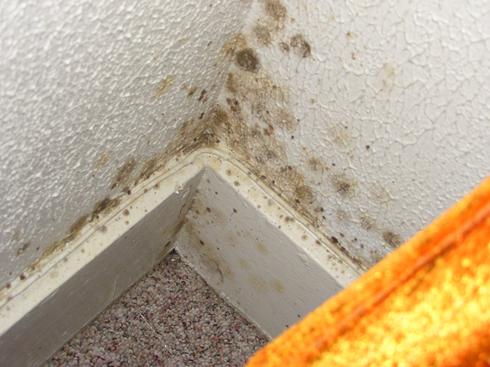 There are a number of little things to look out for when purchasing a new home. Normally the things to consider includes such things as location, wiring, the condition of the house itself, and several other factors. One of these factors that the home buying public is becoming more concerned with is mold. There are many different types of mold that can occur in a home and lead not only to structural damage, but some health concerns as well. Mold is difficult to find in many homes as it grows exclusively in dark and moist areas that are usually hidden somewhere in the structural areas of the home such as attics and basements. By the time mold shows up in the actual living areas, chances are that it is all through the home.
There are a number of little things to look out for when purchasing a new home. Normally the things to consider includes such things as location, wiring, the condition of the house itself, and several other factors. One of these factors that the home buying public is becoming more concerned with is mold. There are many different types of mold that can occur in a home and lead not only to structural damage, but some health concerns as well. Mold is difficult to find in many homes as it grows exclusively in dark and moist areas that are usually hidden somewhere in the structural areas of the home such as attics and basements. By the time mold shows up in the actual living areas, chances are that it is all through the home.
One of the most likely places for mold to form is anywhere that moisture is improperly vented. Another area of concern is if a home has ever flooded and was not completely or properly cleaned and dried after. Leaky plumbing and basement crawlspaces are other likely candidates. Mold can be a difficult thing to completely get rid of as the only thing it needs to continue growth is an organic material such as wood, and moisture. Both of these items are usually abundant in any home. The most likely was that moisture finds its way into the home is through faulty or leaky roofs and foundations. Both of these areas should be checked over by an experienced mold inspector on a fairly regular basis if there is any worry of mold beginning to grow, or if these has been mold in the past. Mold can be an expensive problem to deal with so be pro-active about looking for it, it can save you money in the long run.
Search for Homes Free! Click below!
Rare Opportunity to Buy by the Beach!
What a wonderful opportunity to live your dream of living by the beach! Redondo Beach to be exact! Call me for a scheduled showing! Laura Key 310.866.8422
630 The Village Unit 110 Redondo Beach, CA
$385,000
1 Bed 1 Bath 621 SqFt - HUD
Click Photo for Virtual Tour!!!
Call me today! Laura Key 310.866.8422!
Experienced HUD Selling Agent!
Laura Key on CBS News
California Homebuyers Need Homes!
If you can't see the video from the photo please click here: http://www.cbsnews.com/8301-18563_162-57587256/home-flipping-trend-returns-threatening-higher-prices/
Are you thinking of selling? I have buyers! Call me and let's reach your Real Estate Goal! Laura Key 310.866.8422
4 Big Drivers of the Housing Market Recovery
There seems to be a light at the end of the tunnel and it's getting brighter each day! Let's Get YOU a home! Laura Key 310.866.8422
The Wall Street Journal highlighted four primary reasons why the housing market recovery is strong. They are:
- Sales have made big leaps from year-over-year levels. Existing-home sales are up 9.7 percent compared to one year ago. Sales are at an annual rate of 4.97 million, which is the highest level since November 2009, according to NAR. Despite constrained inventories and recent price gains, home sales continue to post increases.
- Non-distressed home sales are increasing. Home buyers are showing high demand for non-distressed homes. In April, about 18 percent of sales were in foreclosure or a short sale — down from 28 percent year-over-year.
- Inventories have increased. In April, the number of homes for sale rose 11.9 percent from March. The limited supply — mixed with rising buyer demand — has helped home prices to rise around 10 percent year-over-year. “Rising inventory should ultimately slow some of the price rally while boosting sales volumes, helping to restore equilibrium in the housing market,” The Wall Street Journal reports.
- Homes are selling a lot quicker. About half of all homes that were sold in April were on the market for 46 days, down from 83 days one year earlier, according to NAR data.
Search for your next home FREE! Visit me on Facebook and search NOW!
Source: “Four Reasons Why Home Sales Are Looking Healthy,” The Wall Street Journal (May 22, 2013)
What To Ask When Looking At Potential Homes
Buying a house can be an intimidating and overwhelming experience. Here are some key questions to ask yourself and sellers before plopping down a down payment. Let me help you with my FREE homebuyer's class! Call me today! Laura Key 310.866.8422
Buying a house can be an intimidating and overwhelming experience. Here are some key questions to ask yourself and sellers before plopping down a down payment.
What To Ask When Looking At Potential Homes
Following is a list of general questions you should always ask when considering making a real estate purchase. Keep in mind, however, you are unique.
You have particular dislikes and likes as well as factors in your life that are different than other people. The point I am trying to make is that you shouldn’t stick to just these questions. You are making an important choice, so give some thought to your situation.
1. Don’t rush into things. The first question to ask should be directed at yourself. What type of home do you want? How big should it be? What amenities do you want? Are you planning for a family in the next three to five years and will the home be able to accommodate a new bundle of joy? Make a definitive list and stick to it. If you stray from it, you could end up with a house that doesn’t really fit you and suffer buyer’s remorse.
2. The next question is what area do you want to live in? Pick a few. You may find the prices to be excessive or the selection not so hot, but make sure you exhaust those areas before moving on. Again, you want to avoid buyer’s remorse.
3. Once you start looking at homes, a key question to ask is how long the house has been on the market. The amount of time will give you an idea of how flexible the owner is on price. If the house has been on the market for a month, the owner isn’t going to be very flexible. If it has been on the market for six months, flexibility will definitely exist.
4. Has the house previously been in escrow, but fell out? If so, find out why? Was it a problem with the buyer getting financing or did the buyer find out there was something wrong with the home?
5. What kind of condition is the house in and how old is it? Remember that a seller has typically done everything reasonably possible to spruce up the home. If you can see wear and tear on the house, it may be a red flag. In such a situation, you need to get a home inspection to make sure there aren’t problems in areas you can’t see such as mold, rust and water leaks.
6. If you have children or are planning on it, you must investigate the school district. Are the schools good? Are there gangs or crime in the area?
7. In addition to the home price, you should ask whether there are any additional fees such association fees.
8. What are the property taxes and what will they be when you buy? Many people are shocked to find out how much they have to kick out in property taxes. Don’t get surprised.
9. Zoning and easement issues are often overlooked when buying a home. If you are buying in a neighborhood with many homes, zoning is undoubtedly going to be for residential living. Easements, however, can be nasty surprises. Find out if there are any easements on the property. An easement gives a third party the right to use of part of the property. This can include giving the neighbor the right to do something or a utility company to place structures on your prospective property.
10. Noise is another big issue to consider. If you are serious about the property, make sure to drive buy on weekdays and weekends. If the property shares a wall with another residence, such as a duplex or condo, make sure you view it while the neighbors are home to get an idea of how loud it is.
11. In the euphoria of buying a property, practical issues can be missed. A big one is traffic. Specifically, what is the commute like between the house and your place of work? You don’t want to buy the house only to find out it takes three hours to get to and from work each day.
Obviously, you should be asking many additional questions before making a purchase. These 11 questions, however, will help you get started. Call me to schedule a time to discuss the homebuying process in more detail. Don’t forget to look into fun things to do in the area to make sure it’s where you want to live!I care about my clients and educating them is a priority! Laura Key 310.866.8422 or email me at Laura.A.Key@gmail.com
What to Expect At a Foreclosure Auction
Whether you are an investor that would like to get into buying foreclosed homes for your personal use! Call me today! Laura Key 310.866.8422
Whether you are an investor that would like to get into buying foreclosed homes for your personal use or to flip the property or if you are having your home foreclosed on, you should know what to expect at a foreclosure auction. Of course, the actual steps that will be taken can vary a bit from state to state and from house to house, but it’s good to know what you will be getting into when you go to a foreclosure auction. Foreclosure auctions can be exciting, even fun, but knowing what to expect will help you make the most of the experience, whether you are an investor or a homeowner that is trying to get your house back.
Before the Auction
You’ll likely find out about the foreclosure auction in a local newspaper and on the flier may be information to pre-qualify for bidding. This will allow you to put down a deposit so that the auctioneer knows that you are a serious bidder and can fulfill your bid if you are the winning bidder. Being pre-qualified just sort of speeds up the process so that you don’t have to mess around with the deposit on the day of the auction. During this time you should also do some research on the house by looking into any liens that may be against the property, how much the property is worth, how much it has appreciated in the last few years, as well as property values in the area. If the home looks as though it will need some repairs, you should consider this as well when trying to come up with how much you will be willing to pay for the house. Without this research, no amount of knowledge about what goes on at a foreclosure option will help you because you won’t know where to start when it comes to actually making a good bid.
What Happens At the Auction
The auction will typically start with the auctioneer reading legal notices as well as a legal description of the property. The auctioneer will usually then begin taking bids on the property. If the auctioneer has pre-qualified bidders the process is more streamlined, if not, each time a bid is made the auctioneer will then ask for the bidders deposit check, which is typically right around $5,000 for residential auctions. After each bid the auctioneer will attempt to solicit bids for higher amounts. Each auction is different, but the auction increments usually are set by the auctioneer and may be by $100, $500, or $1,000 per bid. The auctioneer will continue to solicit bids by this increment until it is clear that the highest bid has been reached. Then, the auctioneer will announce, “Going once, going twice, three times, sold!” indicating that the auction is over and the property has been sold to the highest bidder.
Once the bidding has ended a foreclosure deed and purchase papers will be drawn up and validated by the new owner or purchaser and the mortgage holder. A grace will likely be given to allow the purchaser to find financing or to come up with the funds to cover the full amount of the bid. This grace period is usually 30 days unless the purchaser and the mortgage holder agree to other terms. After the grace period a closing will take place, so that the new owner can formally take the title to the property.
What Happens, Now?
The purchaser can do what he or she intended to do with the property, whether it is to move into the home or to sell it for full market value. The money paid by the purchaser will be distributed in order of priority, first of which would be taxes. After taxes money will be paid to the mortgage, then the second and third mortgage if applicable. If there is still money after paying these debts, remaining money will be paid to lien holders and creditors. There is a very slim chance that there will be money left over after all of the debts are paid, if this is the case then the monies will be paid to the former home owner.
What about the Original Owner?
The original owner will often be at the auction so that they can bid on their home, and this is legal as long as they have the deposit required. If the owner of the home that has been foreclosed does bid on the home they must remember that the deposit is not refundable and the deposit assumes that they will be able to finance the home within the grace period. Owners must also remember that if they buy the property back old debts may merge and become reinstated such as second and third mortgages that became void when the first mortgage foreclosed on the property unless one has filed bankruptcy and is truly free and clear of these debts. Owners will often drum up the funds to make the deposit so that they can have another 30 days to try to save their home. Owners may or may not be successful in their attempts to save their home at a foreclosure auction.
As you can see, there are a lot of things that go into a foreclosure auction, but none of them are all that difficult to understand, but knowing about them makes the auction more enjoyable. The auction itself is not all that complicated, but it can be very fast paced. At some foreclosure auctions there are a lot of people, at others there are only a few because of the location or just the debts attached to the property, or even the state of the property. If you are serious about the property you should pay close attention when bidding starts so that you are sure that you can get your bid in when you feel it’s time so that you have the best chance of being the top bidder.
Call me for more info! Laura Key 310.866.8422
3 Ways Renters Lose Money
Are you still renting a home or apartment for yourself or your family? If so, you're losing money. Besides losing out on making money with real estate, renters don't get the same satisfaction of home enjoyment that benefits home buyers. If you're renting, call me today to find out how to to buy your own home. Call me today! Laura Key 310.866.8422
Are you still renting a home or apartment for yourself or your family?
If so, you're losing money. Think about these three ways you lose money by renting:
1. You're paying for someone else's mortgage payment. You're missing out on the appreciation that the property gives to the landlord. Appreciation is a term used in accounting relating to the increase in value of an asset, which means in real estate terms, added value to the property. Over the past five years, houses appreciated significantly, making many new real estate investor multimillionaires.
2. Renters don't get to freeze their monthly housing expenses like home buyers can. Of course, many home buyers get mortgage payments with adjustable interest rates and their payments go up over time. However, these payments will not go up over the long term like rising rents. Just think about how much an apartment costs today compared to ten years ago. A two bedroom apartment in Lake Elsinore, California leases for $1,000 today. The exact same apartment rented for $325 in 1996, when it was brand new. Home buyers who had low monthly payments in 1996, who did not refinance their mortgage, enjoy low payments and don't have to worry about rising rents.
3. Renters don't benefit from tax advantages. Home owners get income tax deductions. Tax deductions for interest costs, for instance, save tax payers thousands of dollars.
Emotional Satisfaction of Home Ownership
Besides losing out on making money with real estate, renters don't get the same satisfaction of home enjoyment that benefits home buyers. Many landlords won't allow you to paint your walls in colors that you desire. Also, you won't feel like fixing up the property with custom window coverings and you get little say in flooring materials. Because you can't make your personal statement, you won't feel like you're HOME as much as home owners who feel emotionally connected to their property.
How to Buy Your First Home
The biggest barrier to home ownership is often accumulating funds for a down payment. People think they have to have thousands of dollars for a down payment. However, if you have good credit and a decent job, you can get a mortgage for a home with zero down. And you can finance some of your closing costs as well as ask the seller to help you pay a good portion of your purchase costs. With today's mortgage finance plans, you may be surprised to find out how much of a home you can afford with payments similar to what you currently pay in rent.
You may have to go out of the major metropolitan areas to buy a home. That's why so many people commute in Southern California. Affordable housing costs much less in outlying areas. But so do the rents. If you're renting an apartment for $2,300 in Los Angeles, you could buy a $500,000 home in Wildomar. Our daughter just purchased a home in December 2005 and her mortgage payment, for a 3,000 square foot new home, costs less than $2,300. With her tax savings, she will pay even less than renting a small apartment closer to downtown L A.
If these amounts sound high to you, check your local area. Perhaps your monthly rent is only $1,000 and houses cost less than $200,000. Talk to a mortgage loan officer and see how much of a home you can afford.
If you're renting, make one of your priorities to buy your own home.
Copyright © 2006 Jeanette J. Fisher
Homebuyers clueless about mortgages
Educating homebuyers is one of my favorite things to do! Ask me about my homebuyers class! Laura Key 310.866.8422
The housing market is heating up, yet many house hunters are not prepared to take on the biggest purchases of their lives.
When it comes to mortgages, homebuyers answered basic questions about terms, how to choose a lender and financing wrong nearly one-third of the time, according to an April survey of more than 1,000 current and prospective homeowners by real estate website Zillow.
Among the survey's findings, 31% of buyers don't think it's possible to get a mortgage for less than 5% down; 34% don't know what the term "annual percentage rate" (APR) means and one in four believe you must close with the lender that pre-approves your mortgage.
"All too often buyers focus on negotiating a lower home price and ignore the importance of finding the right loan," said Erin Lantz, director of mortgages for Zillow. "Buyers should always shop multiple lenders and compare rates and fees and read lender reviews in order to find the best loan for their situation."
One example: 34% of respondents believe lenders are required by law to charge the same fees to all clients for credit reports, appraisals and the like. That's wrong. Fees vary from bank to bank and can often be negotiated.
But it's hard to compare those deals if you don't understand what mortgage terms, like "annual percentage rate," mean. The APR factors into fees, upfront points, origination and underwriting fees and other costs that borrowers use to compare the actual cost of loans.
Such knowledge gaps can have long-term consequences. About 34% of first-time homebuyers think they need a down payment of at least 5% to make a home purchase, but loans insured by the Federal Housing Administration can require as little as 3.5% down.
And 24% of buyers believe the best mortgage deals are available through the banks where they currently have their savings and checking accounts, but often competing lenders can undercut those banks by large margins.
"If a homebuyer can lower their interest rate by even half a percentage point, they can not only increase their purchasing power, but save thousands of dollars over the life of the loan," said Lantz.
For every $100,000 borrowed, a half percentage point lower rate would reduce payments by $28 a month on a 30-year, fixed rate loan. That adds up to more than $10,000 over 30 years. Or borrowers could choose to add that $28 savings to each monthly payment. That would shorten the term of the mortgage from 30 years to just over 27 and save $6,500 in interest paid.
Another costly mistake: Many house hunters go shopping with financing in place because it enables them to act more quickly if they see a home they want. But 26% of buyers believe that once they're pre-approved, they're obligated to close the deal with those loans, according to the survey. In reality, there's no obligation. If buyers see better terms available they should take them.
Existing homeowners can also be guilty of ignorance. Some 20% of homeowners surveyed didn't know that underwater mortgages -- those in which borrowers owe more than their homes are worth -- can be refinanced into lower rate loans.
Finally, the survey found that nearly a third of homeowners are unaware that if they go through a foreclosure or short sale, they may not have to wait the full seven years it takes for their credit score to recover and they can buy a home again.
In reality, some homeowners who do short sales can obtain financing to buy another home in as little as two years.
The Consumer Financial Protection Bureau is hoping to make it easier for homebuyers with simplified mortgage forms that help them compare terms and costs and by creating new rules that will protect homeowners from getting into loans they can't afford.
Free home search here! Click the house to begin!
Source: By Les Christie @CNNMoney May 9, 2013
Definition of Prescriptive Easement
Call me if you have some questions about a Prescriptive Easement! I have a team that can help you if you have concerns! Laura Key 310.866.8422
A prescriptive easement creates a right to use another's land for a specific purpose. The easement is created by making use of the land without owner permission for a period of time specified by statute. Interference with a prescriptive easement gives the easement holder cause to bring suit.
Easement in General An easement creates a right to use land that is possessed by another for a specific purpose. One parcel of land, the "dominant tenement," enjoys the benefit of the easement, while the "servient tenement" is the land being used for the easement purpose. Once an easement is validly created, even if not used, it is presumed to be perpetual.
Prescriptive Easement A prescriptive easement is acquired when the servient tenement is used for a specific purpose, for some time without the permission of the owner. Through the continuous use and the owner's failure to stop it, the dominant tenement can acquire the right to use the servient tenement property indefinitely. A prescriptive easement is a type of easement appurtenant, meaning that the holder receives physical use or enjoyment of the property. All who may succeed to title of the dominant tenement will be entitled to the prescriptive easement; the easement need not be mentioned in the conveyance or deed in order to be operative.
Elements Speaking generally, for legal elements are usually required: adverse use (use of the servient property without permission of the owner); open and notorious use (with no attempt at concealment); continuous use for the entire statutory period (required statutory periods vary among states, but the minimum is five years); and hostility, meaning that hte easement user knowes he has no right to use the property. However, individual state' easement laws may display variations, and those with easement issues should consult a legal professional.
Exclusive Use Jurisdictions are split on weather a prescriptive easement requires that adverse use of the property be exclusive in order to fulfill the legal element. A minority of jurisdictions will not allow a prescriptive easement if other parties besides the dominant tenement have also been using the servient tenement adversely for the same use. However, most do not require exclusive use, only that the dominant tenement's right to adversely use the easement "does not depend on a like right in others". In other words, the dominant tenement may still get the prescriptive easement even if the owner or others are also using the tenement in a similar manner.
Termination of Easement As an owner may prevent establishment of a prescriptive easement by effectively ending the dominant tenements adverse use; this can be accomplished by bring suit or physically ejecting the easement user from the property. Easements can also be terminated in several ways; the easement holder can release the servient tenement from the easement; the dominant and servient tenement can merge ownership; or the servient tenement can be condemned. The servient tenement may also invalidate the easement by a sort of "reverse prescription," if the servient tenement uses the easement for a long time and the easement holder "sleeps on his rights."
Source: http://www.ehow.com/about_6501555_definition-prescriptive-easement.html
Does HUD Offer Special Programs for Homebuyers?
Buying a HUD Home is not as difficult as you may think! I have helped many people purchase their 1st Home from HUD! Call me today for more details about the process! Laura.A.Key@gmail.com or Visit my website to sign up for FREE HUD Listings! http://www.KeyCaliforniaHomes.com
Yes, HUD offers a program called the GOOD NEIGHBOR NEXT DOOR PROGRAM for Police Officers, Firefighters, EMT and Teachers! Call for more details on this program! 310.866.8422. If foreclosures are not sold within six months, HUD will sell them for $1 each to approved nonprofit organizations and government agencies. Homes must then be used create housing for families in need or to benefit neighborhoods.
Los Angeles HUD homes, Buying A Hud Home, North Hollywood HUD homes, Westchester HUD Homes, Gardena HUD Homes, Northridge HUD Homes, Santa Clarita HUD Homes, Simi Valley HUD homes, Lemert HUD Homes, Compton HUD Homes, Lynwood HUD Homes, Hawthorne HUD Homes, Inglewood HUD Homes, Baldwin Hills HUD Homes, Playa del rey HUD homes, Marina del Rey HUD Homes, Santa Monica HUD homes, Lakewood HUD homes, Buying A HUD Home, Buying a Los Angeles HUD Home, HUD Trained Agent, HUD NAID agent, Good Neighbor Next Door
Does HUD Offer Financing On Their Homes?
Buying a HUD Home is not as difficult as you may think! I have helped many people purchase their 1st Home from HUD! Call me today for more details about the process! Laura.A.Key@gmail.com or Visit my website to sign up for FREE HUD Listings! http://www.KeyCaliforniaHomes.com
HUD does not provide direct financing to buyers of HUD Homes. Buyers must obtain financing through either their own cash reserves or a mortgage lender. If you have the necessary available cash or can qualify for a loan (subject to certain restrictions) you may buy a HUD Home. While HUD does not provide direct financing for the purchase of a HUD Home, it may be possible for you to qualify for an FHA-insured mortgage to finance the purchase.
Los Angeles HUD homes, Buying A Hud Home, North Hollywood HUD homes, Westchester HUD Homes, Gardena HUD Homes, Northridge HUD Homes, Santa Clarita HUD Homes, Simi Valley HUD homes, Lemert HUD Homes, Compton HUD Homes, Lynwood HUD Homes, Hawthorne HUD Homes, Inglewood HUD Homes, Baldwin Hills HUD Homes, Playa del rey HUD homes, Marina del Rey HUD Homes, Santa Monica HUD homes, Lakewood HUD homes, Buying A HUD Home, Buying a Los Angeles HUD Home, HUD Trained Agent, HUD NAID agent
HUD-Owned Homes Expected to Surge
Soon the market will be filled with new listings from HUD! Are you prepared? Make sure you use an agent who is HUD experienced and can help you find the home of your dreams. I have closed many HUD homes in the past few years! Let me assist you! Laura Key 310.866.8422
The U.S. Department of Housing and Urban Development is reportedly going to be releasing more of its homes to the market, which could be welcome news to buyers who have faced slim pickings in for-sale inventories.
Over the next two years, experts predict that HUD homes on the market will increase significantly as lenders work through the backlogs of foreclosures and foreclosure reviews.
“The inventory is there, [it’s] just not being released during the banks/servicers review of the loan/mortgage documents,” says Nat Genis, a HUD listing broker in Riverside County, Calif., which is already seeing an increase in HUD-owned homes.
"HUD homes are back," Genis told HousingWire. "FHA financing went away with the 'creative' financing of the 80/20 loans, and now with the increase of FHA financing, these government-backed loans guarantee that if the borrower defaults, HUD will pay off the mortgage, obtain the deed, and re-sell the home."
HUD-owned homes can be appealing because of the discounted sales price, even though they can be in poor condition often times, HousingWire reports.
HUD had 39,442 homes in its REO inventory nationwide as of Feb. 28, 2013—with 20,536 of those having pending contracts on them, according to HUD.
Source: “HUD homes add to inventory-starved market,” HousingWire (April 29, 2013)
Do I Need An Appraisal On A HUD Home?
Buying a HUD Home is not as difficult as you may think! I have helped many people purchase their 1st Home from HUD! Call me today for more details about the process! Laura.A.Key@gmail.com or Visit my website to sign up for FREE HUD Listings! http://www.KeyCaliforniaHomes.com
It is not necessary to have a HUD home independently appraised, HUD offers an appraisal every 6 months. Your Lender may require a more current appraisal than the one provided by HUD. Ask your loan officer or HUD registered agent.
Los Angeles HUD homes, Buying A Hud Home, North Hollywood HUD homes, Westchester HUD Homes, Gardena HUD Homes, Northridge HUD Homes, Santa Clarita HUD Homes, Simi Valley HUD homes, Lemert HUD Homes, Compton HUD Homes, Lynwood HUD Homes, Hawthorne HUD Homes, Inglewood HUD Homes, Baldwin Hills HUD Homes, Playa del rey HUD homes, Marina del Rey HUD Homes, Santa Monica HUD homes, Lakewood HUD homes, Buying A HUD Home, Buying a Los Angeles HUD Home, HUD Trained Agent, HUD NAID agent
How Much Money Will I Have to Put Down on a HUD Home?
Buying a HUD Home is not as difficult as you may think! I have helped many people purchase their 1st Home from HUD! Call me today for more details about the process! Laura.A.Key@gmail.com or Visit my website to sign up for FREE HUD Listings! http://www.KeyCaliforniaHomes.com
If the bid price is less than $50,000, you’re required to make an earnest money deposit of $500. HUD homes priced greater than $50,000 require a $1000 deposit.
Los Angeles HUD homes, Buying A Hud Home, North Hollywood HUD homes, Westchester HUD Homes, Gardena HUD Homes, Northridge HUD Homes, Santa Clarita HUD Homes, Simi Valley HUD homes, Lemert HUD Homes, Compton HUD Homes, Lynwood HUD Homes, Hawthorne HUD Homes, Inglewood HUD Homes, Baldwin Hills HUD Homes, Playa del rey HUD homes, Marina del Rey HUD Homes, Santa Monica HUD homes, Lakewood HUD homes, Buying A HUD Home, Buying a Los Angeles HUD Home, HUD Trained Agent, HUD NAID agent

